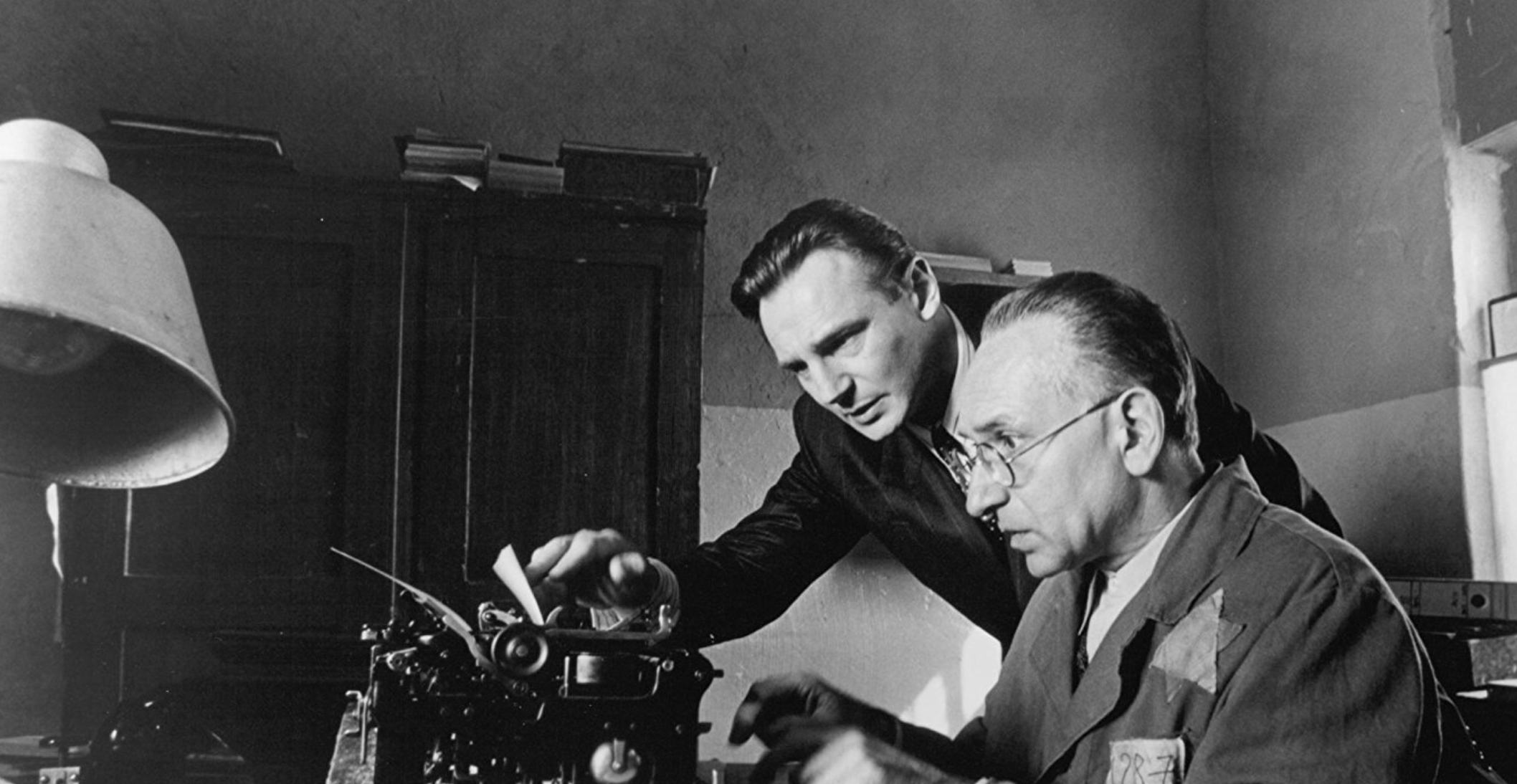 Photo from Universal Studios.
Photo from Universal Studios. Two anniversaries this spring deserve recognition as turning points in bringing the then largely ignored horror of the Holocaust home to the post-World War II generation, thanks to the enormous impact of television and movies.
In 1979, the miniseries “Holocaust” had viewers in Europe glued to their TVs, and on March 3, 1994, Steven Spielberg’s “Schindler’s List” opened in Berlin.
During that decade and a half, I went on a number of press trips to Germany at the invitation of the Federal Republic of Germany and the municipality of Berlin. I planned to do a series of interviews with the younger generation on the current art and theater scene and query the older generation on the fortunes of my favorite soccer teams from my own childhood in the German capital. But within a few minutes of starting the interviews, my interlocutors invariably turned the conversation to the Holocaust. Older interviewees attributed their awakening to watching the four-part “Holocaust” miniseries, starring Meryl Streep and James Woods, which had debuted in the United States on NBC in 1978. It traced the fates of two Berlin families, one Jewish and the other Christian.
Thirty-six percent of all Germans with TV sets watched the miniseries, and Der Spiegel, Germany’s equivalent of Time magazine, could barely contain its enthusiasm. “The [series] has managed to do what hundreds of books, plays, films and television broadcasts, thousands of documents and all concentration camp trials in three decades of post-war history failed to do — inform Germans about the crimes committed against the Jews in their name in such a way that millions were shaken,” its reviewer wrote.
That same year, the German parliament eliminated the statute of limitations, which had set a cutoff date for the prosecution of war crimes committed by German citizens.
“We don’t know what obstacles the producers of ‘Holocaust’ encountered, but it took Hollywood’s self-described ‘900-pound gorilla’ to put ‘Schindler’s List’ on movie screens.”
Fifteen years later, when “Schindler’s List” opened, German media competed in lauding the film based on the story of the “good German,” businessman Oskar Schindler, who did what most Germans could not or would not do to save Jews from Nazi extermination.
In an unusual front-page editorial, the Frankfurter Allgemeine Zeitung, Germany’s equivalent to The New York Times, noted, “All indications are that Spielberg’s film will move and excite the country. Everyone should see this film.” The Washington Post correspondent in Berlin credited the film with the “reopening of a national debate about guilt, courage and the unresolved mysteries of mass murder.”
We don’t know what obstacles the producers of “Holocaust” encountered in selling their project to NBC, but it took Hollywood’s self-described “900-pound gorilla” to put “Schindler’s List” on movie screens.
When he first outlined his vision to make an R-rated, three-hours-plus film in black and white without big stars, Spielberg said his bosses at Universal Pictures suggested if he felt the need to commemorate the Holocaust, he should make a generous donation to a museum but spare the studio the humiliation — and financial loss — of making a movie no one would watch. Spielberg said he agreed that the project would be a box-office flop, but he felt he had to go ahead and make it anyway.
So much for Hollywood prognostications. “Schindler’s List” was made with a $22 million budget. Its gross earnings, in the U.S. alone, came to almost $97 million. It also brought Spielberg, after 17 films, his first Oscars, for best director and best picture.
Last fall, Spielberg re-released the film on its 25th anniversary. The Forward stated that Spielberg decided to re-release the film based on his “perception of a renewed cycle of hate.” His view is buttressed by global reports of rising anti-Semitism, proving once again that in every generation, the battle against “the oldest hate” must be fought anew.























 More news and opinions than at a Shabbat dinner, right in your inbox.
More news and opinions than at a Shabbat dinner, right in your inbox.